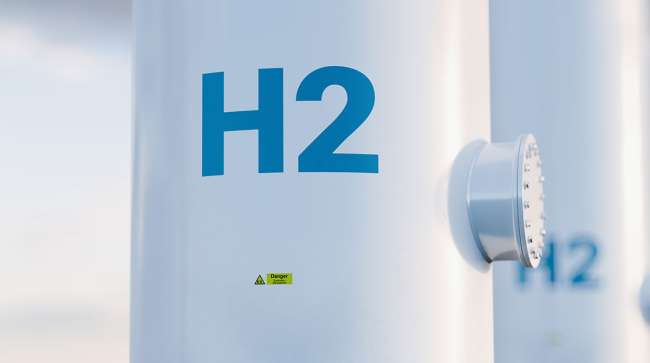Staff Reporter
DOE Encourages 33 Regional Hydrogen Hubs to Compete in Final Funding Phase

[Stay on top of transportation news: Get TTNews in your inbox.]
The Department of Energy advised proposed consortiums backed by states and others competing for a share of $7 billion in federal funds for their regional hydrogen hubs to get their permits, cost projections and community outreach plans in order.
DOE, tasked by the White House to develop hydrogen energy vital to power longhaul heavy trucks powered by fuel cells, recently held an H2Hubs applicant informational webinar to help regional hydrogen hubs learn essential elements for federal funding approval.
David Crane, DOE’s director of the Office of Clean Energy Demonstrations (OCED), led the discussion by saying that the hydrogen hubs’ allocation ranks among the “largest financial assistance programs” in the agency’s history.
Of 79 requests for DOE funds to establish six to 10 regional hydrogen hubs, only 33 were encouraged by DOE to submit full proposals by 5 p.m. Eastern time April 7. However, the proposed hubs that received discouragement letters still can submit proposals.

David Crane, director of the Office of Clean Energy Demonstrations. (Department of Energy)
Crane said concept papers to DOE for the 79 projects sought a total of $60 billion for projects amounting to a combined $200 billion with the inclusion of private sector capital.
“The depth and breadth of the response to our FOA [Funding Opportunity Announcement], I believe, eclipses by a significant margin any of the hydrogen programs being pursued by our friends and other like-minded countries around the world,” Crane told webinar participants. He noted that those approved by DOE will “secure first mover advantage for the United States in the race to fully commercialize hydrogen as the go-to energy commodity of the 21st century.”
He urged them to take seriously the proposal’s community benefits and include affected local stakeholders.
“The last thing we want to see at the DOE is a billion dollars of our precious hydrogen hub capital not deployed because an otherwise worthy project ran into entrenched opposition from local communities, which had been disregarded during this process,” Crane stated.

Miller
DOE associate director leading hydrogen hubs, Eric Miller of OCED project management, said applicants must include specifics on cost estimates and schedule risks, which were lacking in submittals that focused more on technological capabilities with production plants, end uses and storage.
“We want to fund projects and hubs that get built and, obviously, receipt of permits will be critical to this,” Miller added. “To receive your permits, there will need to be some progress made on state and local regulations as they relate to hydrogen.”
Applicants were urged to include in their plans the time, effort and risk in obtaining necessary permits and creating regulations for the new uses of hydrogen in states and municipalities.
DOE spokesman Jeremy Paul Ortiz said proposal selection will occur this summer. Meanwhile 18 proposed hydrogen hubs already have received DOE's go-ahead.

Reacting recently to West Virginia’s good news were U.S. Sens. Shelley Moore Capito (R) and Joe Manchin (D). Capito said she welcomed the addition of Kentucky, Ohio and Maryland “throwing their weight behind our efforts to establish an Appalachian Regional Clean Hydrogen Hub” for energy generation.
“Kentucky, Maryland and Ohio’s support further strengthens the ARCH2 application, and I am delighted we will work together to find innovative ways to provide energy security to the entire nation,” Manchin said.
Port of Corpus Christi CEO Sean Strawbridge said the public port authority has large tracts of available land and a burgeoning industrial complex that can be converted to large-scale clean hydrogen production serving regionally and externally to U.S. and international end users. It would offer a common carrier and connective infrastructure to de-risk and accelerate multiple projects.
Want more news? Listen to today's daily briefing below or go here for more info:




